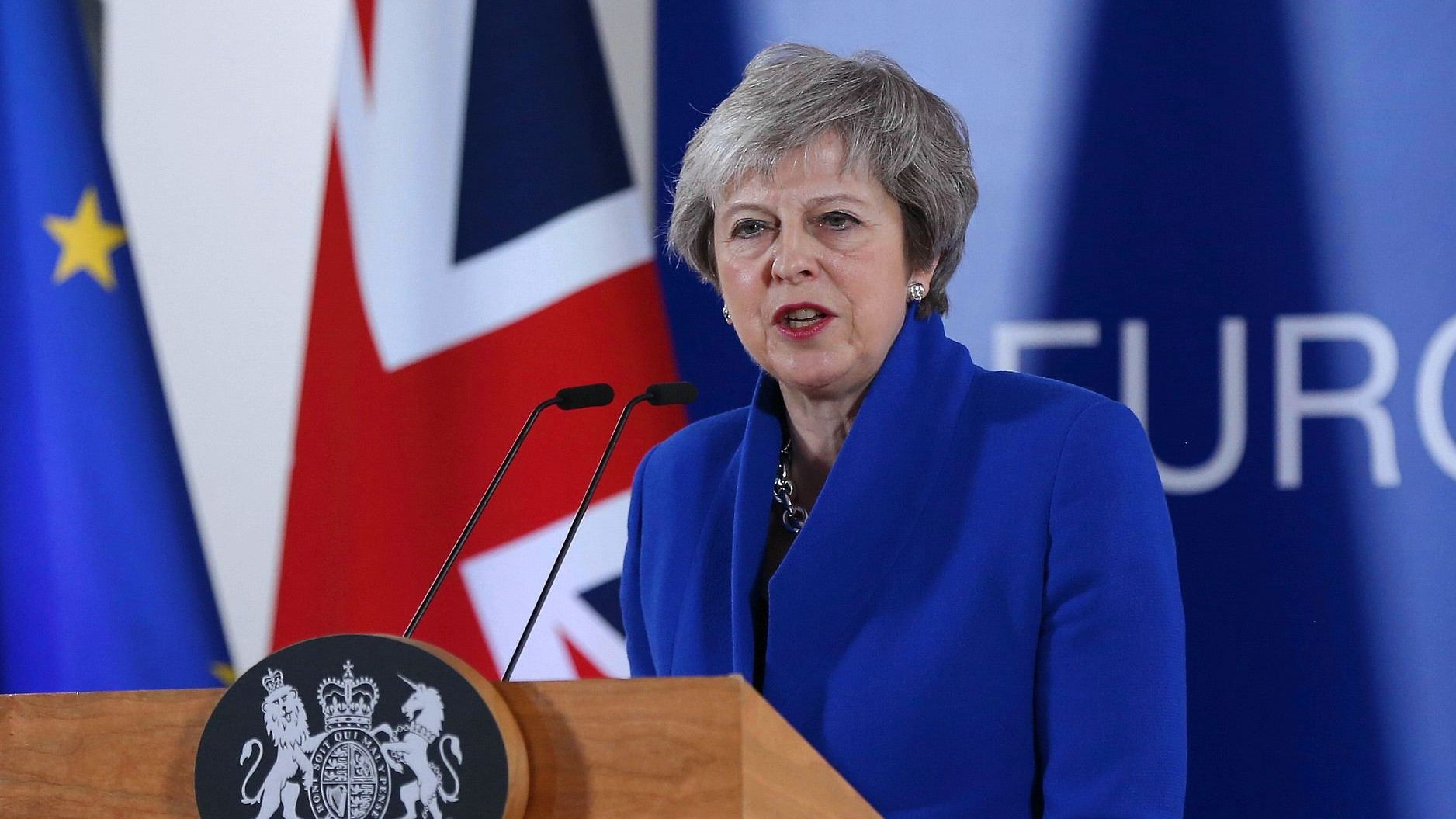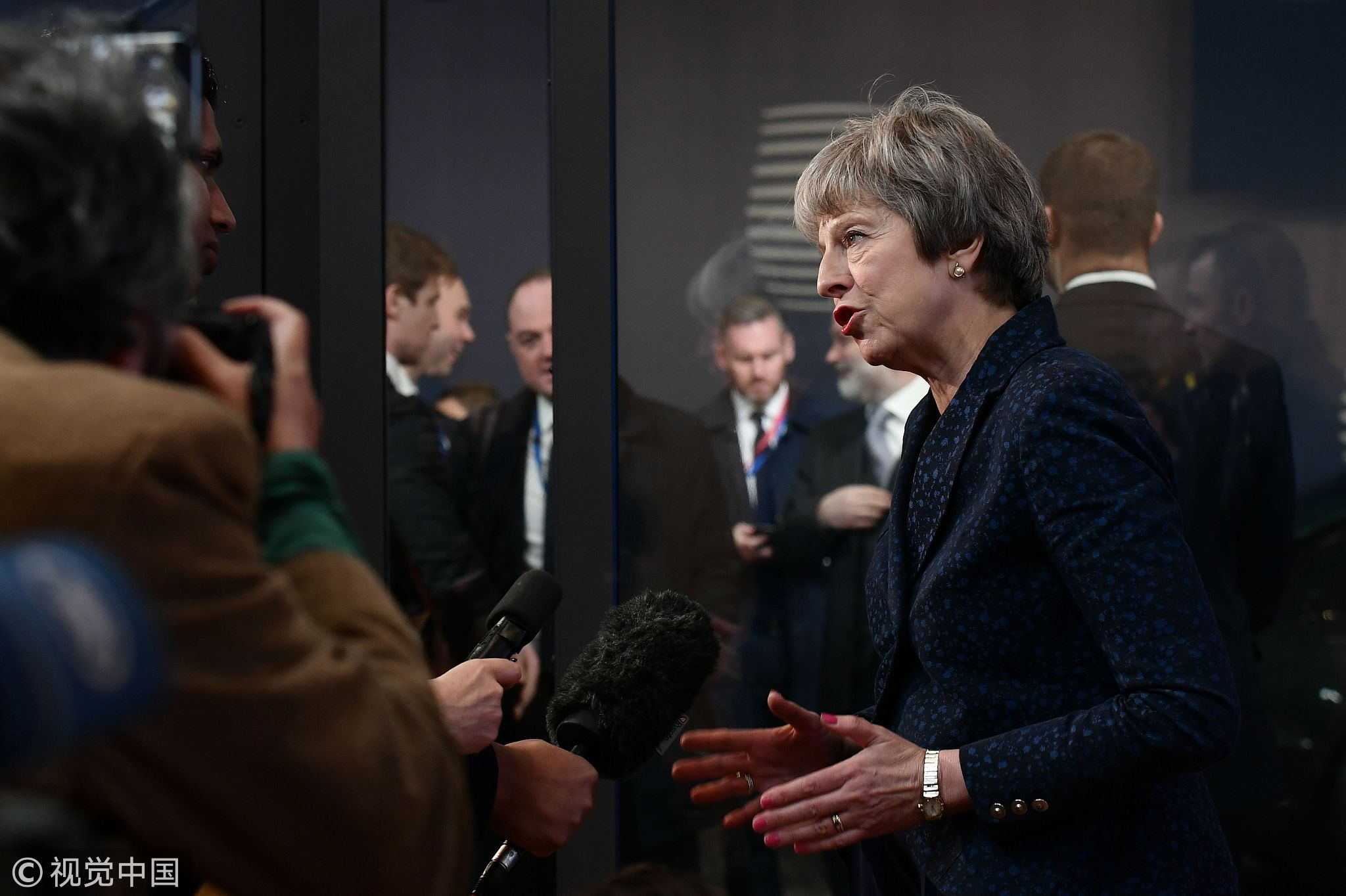
Opinions
09:07, 26-Nov-2018
Opinion: Theresa May has played her cards, now it's crunch time
Updated
07:59, 29-Nov-2018
Tom Fowdy

Editor's note: Tom Fowdy is a UK-based political analyst. The article reflects the author's views, and not necessarily those of CGTN.
As predicted, Theresa May's summit in Brussels with European Leaders proved to be a formality.
Having forged a consensus over the terms of Britain's departure and future relations, the proposed agreement was approved unanimously by leaders of the member states, described as having happened in a matter of minutes.
With Europe and 10 Downing Street now in apparent agreement, one might think that the long uncertainties surrounding Brexit are finally over. They aren't.

Britain's Prime Minister Theresa May addresses media representatives after Brexit talks at EU Headquarters in Brussels, November 24, 2018. /VCG Photo
Britain's Prime Minister Theresa May addresses media representatives after Brexit talks at EU Headquarters in Brussels, November 24, 2018. /VCG Photo
The European Union might have been able to agree on what form of Brexit it can endorse, but the UK has certainly not.
By settling on this deal, Theresa May has now played all her cards. She is gambling upon an agreement which despite failing to please anyone, she must push forwards. As the hurdle of the parliamentary vote now approaches, her political future and the country's political future hangs in the balance. It's crunch time.
This is the deal Europe has proposed. There will be nothing different, nor will there be anything better, unless Britain faces first the enormous consequences of a no-deal.
President of the Commission Jean-Claude Juncker stated that the British would be “disappointed” if they hoped for better terms.
His words are cold and to some, even arrogant, yet it is truthful.
As much as Brexiters detest it, Europe is not able to offer any more to the UK without severely compromising their own interests. It is a final decision they have rested upon. Theresa May felt obligated to accept it.
For all the contempt aimed at her, the outcome acknowledges the realism of the situation and the geopolitical practicalities which mandate sustaining a close relationship. There was no other way.
Ultimately, the scorn of the most ardent Brexiters has been built upon idealism and blatant negligence of the United Kingdom's best interests. May might have attempted to posture a hard line to appease these factions in her party, but there was no possible way their demands could stand as a serious outcome of negotiations. In the end, it was the compromise or the dramatic fallout of a “no deal.”

EU chief Brexit negotiator Michel Barnier (L), President of the European Commission Jean-Claude Juncker (C) and European Council President Donald Tusk on their way to a press conference following a special meeting of the European Council to endorse the draft Brexit withdrawal agreement in Brussels, November 25, 2018. /VCG Photo
EU chief Brexit negotiator Michel Barnier (L), President of the European Commission Jean-Claude Juncker (C) and European Council President Donald Tusk on their way to a press conference following a special meeting of the European Council to endorse the draft Brexit withdrawal agreement in Brussels, November 25, 2018. /VCG Photo
Yes, this settlement does her no political favors. Brexit and the agreement are inherently contradictory ideas which do not leave logical space for each other.
Brexit cannot be a compromise because Brexit is an assault against the definition of compromise itself. The very proposal of Britain's departure from the European Union was weighted upon the argument that Britain should not compromise with Europe on matters in its best interest. Therefore it was better to leave altogether.
The most active supporters of the break in membership didn't want a middle ground; otherwise, they would have supported membership itself.
This, in turn, outlines the position of remainders, who are in turn not looking for a compromise because, for them, such a middle ground is a banal acknowledgment that Britain has fundamental interests in a close relationship with Europe. Therefore they raise the question of why leave in the first place? Thus, May's deal exists within a political black void, attempting to bridge a gaping faultline over a deeply polarized society. But it is hopeless, as both sides still managed to agree that her deal as inherently useless and self-defeating.
Still, the prime minister cannot turn back now. The stage is set, and the game is long in motion. She has no other choice but to move forward with this deal and if necessary, fall upon her own sword.
It doesn't look promising. Britain's future now hangs in the balance as much as her own does. What is going to happen next? Nobody knows, like any game it might go a number of ways.
Regardless, May's cards are now down and on the table. It's parliament's turn now.
(Cover photo: British Prime Minister Theresa May holds a press conference within the session of the European Council over Brexit in Brussels, Belgium, November 25, 2018. /VCG Photo)
(If you want to contribute and have specific expertise, please contact us at opinions@cgtn.com.)

SITEMAP
Copyright © 2018 CGTN. Beijing ICP prepared NO.16065310-3
Copyright © 2018 CGTN. Beijing ICP prepared NO.16065310-3